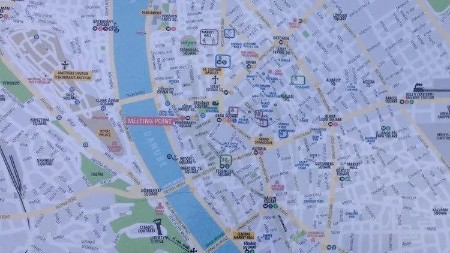IB Math MAI HL - Graph Theory

IB Math MAI HL - Graph Theory
Published 7/2024
Duration: 1h53m | .MP4 1280x720, 30 fps(r) | AAC, 44100 Hz, 2ch | 740 MB
Genre: eLearning | Language: English
Graph Theory - Kruskal and Prim's Algorithm, Traveling Salesman Problem, Chinese Postman Problem, Minimum Spanning Tree
What you'll learn
Students will be able to create adjacency matrices and graphs.
Students will be able to determine the number of paths of given lengths and find the steady-state probability matrix.
Students will be able to use Prim and Kruskal's algorithms to compute minimum spanning trees.
Students will be able to solve the Chinese Postman Problem for given graphs.
Students will be able to solve the classical Travelling Salesman Problem (TSP) and the practical TSP.
Requirements
No prior knowledge required
Description
Graph theory is a relatively modern mathematics and this course starts at the beginning of graph theory, introducing terms and definitions, such as circuits, trails and edges or cycles, paths and vertices and teaches Kruskal's and Prim's Algorithms to determine a minimum spanning tree. From there it goes on and teaches step by step the Chinese Postman Problem (all about edges) and the Traveling Salesman problem (all about vertices), finding the upper bound by the Nearest Neighbour Algorithm and the lower bound with the Deleted Vertex Algorithm. Throughout the course you get detailed explanations about the concepts of graph theory as well as having opporunities to solve some problems that have video solutions. Initially some questions will be simpler than IB questions so you can build the knowledge and the understanding required to be able to solve the IB questions. You will have access to example problems and solutions as well as some practice tests that are all designed with the IB exams in mind. They will included both paper 1 and paper 2 like problems. The practice tests include types the of questions you may expect on the MAI HL paper 1 and paper 2 so you can ace the IB exams.
Who this course is for:
Students in the International Baccalaureate Program particularly those studying the Higher Level Math Applications and Interpretations Course
Math Students
More Info

What you'll learn
Students will be able to create adjacency matrices and graphs.
Students will be able to determine the number of paths of given lengths and find the steady-state probability matrix.
Students will be able to use Prim and Kruskal's algorithms to compute minimum spanning trees.
Students will be able to solve the Chinese Postman Problem for given graphs.
Students will be able to solve the classical Travelling Salesman Problem (TSP) and the practical TSP.
Requirements
No prior knowledge required
Description
Graph theory is a relatively modern mathematics and this course starts at the beginning of graph theory, introducing terms and definitions, such as circuits, trails and edges or cycles, paths and vertices and teaches Kruskal's and Prim's Algorithms to determine a minimum spanning tree. From there it goes on and teaches step by step the Chinese Postman Problem (all about edges) and the Traveling Salesman problem (all about vertices), finding the upper bound by the Nearest Neighbour Algorithm and the lower bound with the Deleted Vertex Algorithm. Throughout the course you get detailed explanations about the concepts of graph theory as well as having opporunities to solve some problems that have video solutions. Initially some questions will be simpler than IB questions so you can build the knowledge and the understanding required to be able to solve the IB questions. You will have access to example problems and solutions as well as some practice tests that are all designed with the IB exams in mind. They will included both paper 1 and paper 2 like problems. The practice tests include types the of questions you may expect on the MAI HL paper 1 and paper 2 so you can ace the IB exams.
Who this course is for:
Students in the International Baccalaureate Program particularly those studying the Higher Level Math Applications and Interpretations Course
Math Students
More Info

